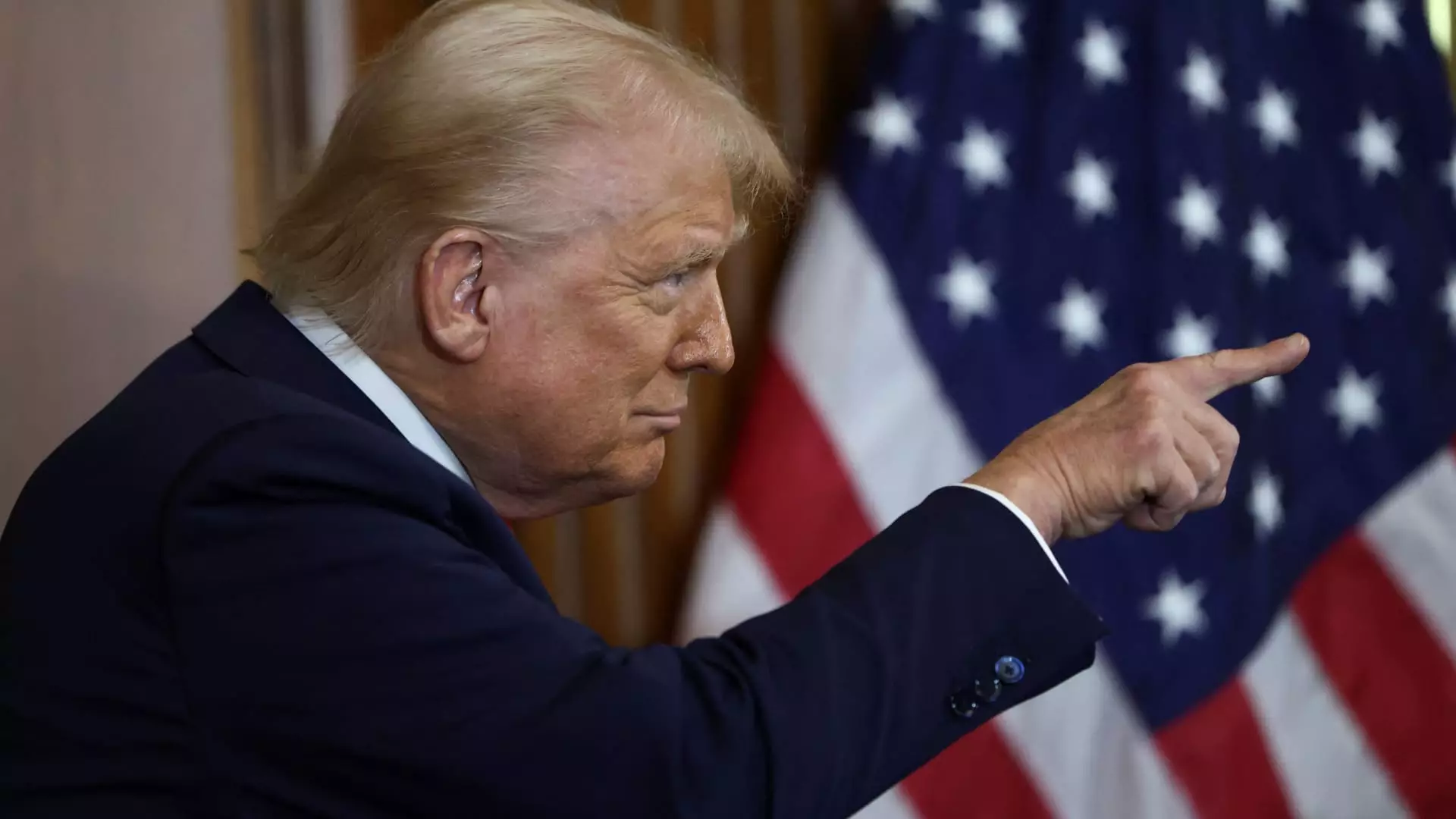In an unexpected twist, former President Donald Trump has suggested a tax increase on the wealthiest Americans, an idea that ignites a fiery debate within Republican circles. Traditionally known for their staunch advocacy of tax cuts, this potential policy shift could signify a broader, more complex understanding of fiscal responsibility. Trump’s openness to reversing the top income tax rate from 37% back to 39.6% for individuals earning over $2.5 million annually reflects a noteworthy, albeit controversial, evolution in his policy stance—the contradiction to his legacy as the architect of the 2017 Tax Cuts and Jobs Act (TCJA). While many Republicans may view his call for a tax hike as a betrayal, a deeper analysis reveals that this move could be a strategic necessity amid ongoing budgetary crises.
The Necessity of Addressing Income Inequality
One of the most compelling arguments for Trump’s proposed tax increase lies in the undeniable reality of income inequality in America. Over the past few decades, the gap between the ultra-wealthy and the working class has widened alarmingly. Raising taxes on high earners, particularly in a way that funds essential programs like Medicaid, represents a step toward recalibrating this imbalance. It becomes increasingly difficult to justify immense wealth accumulation when so many Americans struggle to make ends meet. By targeting the wealthy, the proposed hike could serve as an instrument for a more equitable distribution of resources, an essential goal for any responsible progressive agenda.
Reinvigorating Social Safety Nets
A crucial aspect of Trump’s proposal is the potential to preserve vital social safety nets like Medicaid—a system that directly affects millions of Americans. By advocating for a tax hike on the wealthiest, the discussion shifts from merely benefitting the affluent to ensuring that essential services continue to operate effectively. The idea that the affluent should contribute more to support these critical programs is not just equitable; it’s smart governance. Fiscal sustainability is predicated on maintaining robust social programs that assist the most vulnerable sectors of society.
The Carried Interest Loophole: A Target for Reform
Additionally, Trump’s suggestion to close the carried interest loophole should be applauded. This loophole allows hedge fund managers and private equity investors to pay a lower tax rate on income that should rightfully be classified as ordinary income. Trump’s intent to tackle this glaring inequity showcases an alignment with the values of fairness and justice in tax policy. Closing this loophole not only raises revenue but also sends a powerful message that all income should be taxed uniformly, increasing trust in the tax system and fairness in accountability.
Market Reactions and the Economic Impact
Some skeptics may argue that such tax hikes could stifle economic growth, detracting from investment and entrepreneurship. However, this perspective tends to overlook the fact that a more equitable tax structure can lead to a more robust economy. When the working class has more spending power—thanks to enhanced social services funded by higher taxes on the ultrarich—there’s the potential for increased demand for goods and services, stimulating business growth. Therefore, a judicious balance between taxation and investment could ultimately foster a healthier economic environment.
Political Ramifications: A Test for Republican Unity
Trump’s tax hike proposal serves as more than just a fiscal maneuver; it’s a litmus test for Republican unity. Will the party double down on its historical aversion to tax increases, or will it embrace a more pragmatic approach in the face of economic realities? The internal conflict could redefine party lines, challenging traditional conservative doctrine. It’s an opportunity for moderate Republicans to align themselves with the center-wing liberal agenda, seeking to build a coalition focused on practical solutions rather than ideological purity.
A Dual Edge: Public Perception and Political Capital
Lastly, public perception plays a crucial role in deciphering the success of this proposed tax hike. If Trump and his allies can effectively communicate the benefits of such a policy—enlightening Americans about how these funds would be utilized—they might cultivate a robust base of support. The political capital gained from demonstrating fiscal wisdom and social empathy could solidify their standings in the eyes of constituents who are increasingly prioritizing fairness and accountability over traditional party lines. Such a pivot is essential in a rapidly evolving political landscape where voters are leaning toward candidates who address real issues with possible solutions.
Trump’s contemplation of a tax increase on the highest earners reveals a transformative opportunity for American politics. It promises not only to tackle income inequality but also to strengthen social systems that benefit all citizens—a bold and necessary conversation that must continue.

